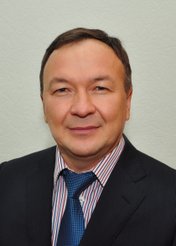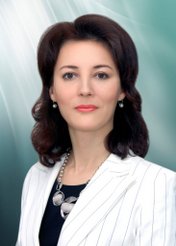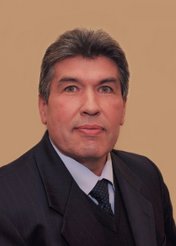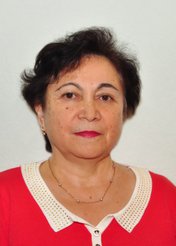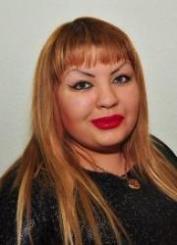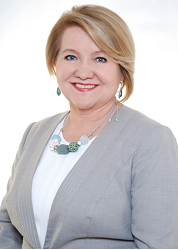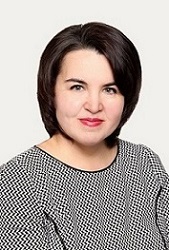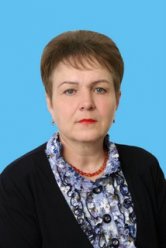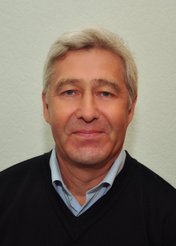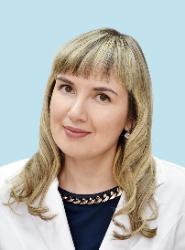Departments
Department of Microbiology, virology
- Basic information
- Educational activity
- Staff
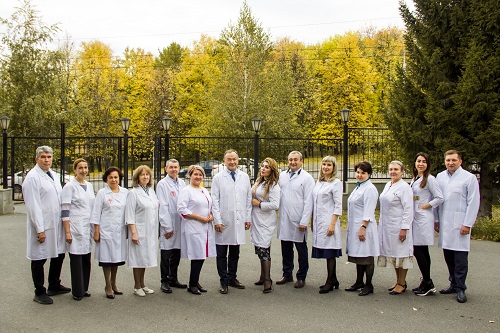
The head of the department is Professor, Doctor of Medical Sciences Tuigunov Marcel Maratovich.
At the department work: professor, doctor of medical sciences Aidar Kazbekovich Bulgakov, professor, doctor of Medical Sciences Sufiyarov Rinat Sabitovich,
Associate Professors: Ph.D. Davletshina Gulshat Kinzyabulatovna, Ph.D. Khusnarizanova Rauza Fazylovna, Ph.D. Rafikova Liliya Marsovna, Ph.D. Gashimova Dinara Timerbaevna, Ph.D. Musyrgalina Farzana Faritovna, Ph.D. Smagina Galina Ivanovna
Assistants: Ph.D. Idiatullina Gulnur Azatovna, Ph.D Yusupova Nailya Ramilievna, Khisamiev Ilnur Ilyasovich, Gabitov Rustam Mavlitovich, Ziyazetdinov Ruzvil Gabdulkhaevich, Prudent Ihekoronye
Senior laboratory assistant – Zalia Venerovna Gabidullina, laboratory assistant Elvera Vakhitovna Davletshina
Contact Information:
Address: Ufa- 450005, Z. Validi, house 47, building №2, floor 1 Tel .: (347) 272-83-88
E-mail: kafmv85@mail.ru
HISTORY OF THE DEPARTMENT
The Department of Microbiology, virology was formed in 1934, it was headed by Professor S. Belyavtsev (1934-1937). Subsequently, Associate Professor B. Suleimanov B.V. (1937-1938), Mityukovich N.N. (1938-1940), professor German I.A. (1940-1941).
For more than 25 years (1941-1967), the department was headed by professor, honored worker of science of the Republic of Bashkortostan Nikolay Ivanovich Melnikov, and later his student was a participant in the Great Patriotic War, professor, honored worker of science of the Republic of Bashkortostan Gimranov Mansur Gimranovich (1967-1984).
Since 1984, the department was headed by a student of M. G. Gimranov, professor, Honored Worker of Science of the Republic of Bashkortostan and the Russian Federation Gabidullin 3aynulla Gaynullinovich.
Since August 2014, the department has been headed by Doctor of Medical Sciences, Professor Tuigunov Marcel Maratovich.
From August 1941 to 1967, the department was headed by Professor N.I. Melnikov.
Nikolai Ivanovich graduated from high school, studied at the Kiev Institute of Law, spoke various foreign languages (German, Greek, Latin) and was a very erudite specialist.
Without defending a dissertation in 1936, he received the Ph.D. degree, and during the Great Patriotic War in 1943 he defended his doctoral dissertation and received the title of professor.
His authority at the institute in those years was unquestioned. N.I. Melnikov was a member of the scientific council of the Ministry of Health of the RSFSR and chairman of the examination committee in Kazan, where he traveled many times with a faithful life partner Zoya Nikiforovna.
For great services to domestic health care in 1954 he was awarded the Order of Lenin. A man of an open soul, sociable, with a good sense of humor, Nikolai Ivanovich was loved by his colleagues and numerous students.
His name is entered in the book of honor of the board of the All-Union Society of Epidemiologists, Microbiologists and Immunologists.
In the war and post-war years, the foundation was laid for the research activities of the department.
Back in the 19th century, a remarkable microbiologist, French researcher Louis Pasteur, spoke of the "infinitely large role of infinitely small creatures."
That subject of the department, which was chosen by Professor N.I. Melnikov 60 years ago: the study of the properties of opportunistic microorganisms turned out to be unchanged and always relevant.
Only "infinitely small creatures" are studied by his followers, led by Professor Gabidulinny Z. G. at the modern molecular genetic level.
So, since 1945, under the guidance of Professor Melnikov, 28 theses were defended (3 of them are doctor's).
Nikolai Ivanovich devoted 5 monographs to the study of the properties of opportunistic microorganisms, of which “Pathogenicity Enzymes and Bacteria Toxins”, written in collaboration with MG Gimranov and son V.N. Melnikov - became a handbook for microbiologists of the next generations.
Out of 77 years of the department’s existence, 17 years (from 1967 to 1984), it was headed by Professor Mansur Gimranovich Gimranov, Honored Scientist of the BASSR, a student of Professor N.I. Melnikov, who determined the scientific subjects of the department for many decades to come, was the study of the properties of opportunistic microorganisms.
Mansur Gimranovich in the pre-war years graduated from the medical school (1936-1939) and entered the medical institute, but not even one month passed before he was drafted into the Soviet Army.
He was able to return to his native village only five years after the front-line wound and the hospital, and began to work as deputy chairman of the collective farm.
But the craving for study overpowered everyday worries, and the young veteran again returned to his native institute as a first-year student and graduated from high school at the age of 32.
According to the memoirs of M.G. Gimranova, “alma mater” opened for him an amazing world of knowledge. The teachers of the post-war years left a great impression as “respectable people of high erudition”.
Since 1949, M.G. Gimranov is a graduate student of the Department of Microbiology, who has devoted his many years of scientific work to the study of the properties of the microbe-associate
- Proteus.
Under the direction of M.G. Gimranova subsequently defended 6 candidate dissertations. The post-war department was well equipped with equipment and nutrient media (this is the legacy left after the evacuation of Moscow universities).
Already in the 50s, the educational process at the Department of Microbiology kept pace with the scientific discoveries of those years.
So, even the elite metropolitan educational medical universities could not always boast of virological research methods that were introduced into practical classes, while in peripheral Ufa, future microbiological students infected the chicken embryos with the virus.
Mansur Gimranovich, being the dean, introduced the cyclic method of classes in junior courses, which allowed to maintain the staging of bacteriological research.
As well as his teacher N.I. Melnikov, M.G. Gimranov for many years headed the Bashkir branch of the society of microbiologists, epidemiologists and parasitologists, which has always been distinguished by good performance.
Mansur Gimranovich was the editor of the intra-institutional newspaper “For Medical Personnel”, a member of the board of the Republican society “Knowledge”.
For his services, Professor M.G. Gimranov was awarded many orders and medals (October Revolution, World War II, Red Star).
Mansur Gimranovich is a co-author of the monograph “Pathogenicity Enzymes and Bacteria Toxins”, written by a team of scientists (Melnikov NI, Melnikov VN) and which has become a truly desktop tool for many microbiologists of the next generations.
Gimranov’s students are many microbiologists, including Professor, Honored Scientist of the Russian Federation and the Republic of Bashkortostan Gabidullin Z.G., Head of the Department of Epidemiology Professor G.E. Efimov, Professor A.R. Mavzyutov, associate professors T.A. Savchenko, G.K. Davletshina, G.N. Nigmatullina, and many others.
Professor Gabidullin Z.G. - Graduate of our university, 1972, Lenin scholarship holder, permanent headman of the course at the pediatric faculty. At the end of the university, as a
promising graduate, he was left in graduate school at the Department of Microbiology, successfully defended his dissertation.
Being purposeful and hardworking, he continued his scientific research and in 1990 defended his doctoral dissertation on the biological characterization of protea strains.
The topic of the study of opportunistic microorganisms has become the central scientific theme of many dissertations and monographs issued by the department staff at different periods of its existence.
This was made possible thanks to the modern equipment of the department, as well as the close- knit work of a friendly team of employees of the Department of Microbiology, which was headed by Professor Z. G. Gabidullin for 27 years.
In the future, the main scientific direction of the department was the study of the properties of dozens of genera of opportunistic microorganisms at the modern molecular genetic level.
Professor Gabidullin Z.G. created a scientific school recognized by the departments of microbiology of all medical universities of the country.
Under the leadership of Gabidullin Z.G. 23 strains were isolated and characterized conditionally pathogenic enterobacteria with new biological properties, which are included in the collection of the Central Research Institute for Standardization and Control of L.A. Tarasevich and are the reference and priority.
He was the first to characterize the new biological properties of opportunistic enterobacteria (adhesins, eneterotoxins, hemolysins of various types of nuclease, as well as their genetic determinants).
Gabidullin Z.G. For the first time in the world, he developed the phenomenon of detection of adhesins of opportunistic enterobacteria.
At the Department of Microbiology, Virology and Immunology, under the direction of Z. G. Gabidullin, the Diagnostic Laboratory was opened to provide diagnostic services to the population of the Republic of Bashkortostan.
The results of scientific research carried out under the guidance of Professor Z.G. Gabidullina, presented and summarized in 9 doctoral, 30 master's theses, published about 32 scientific publications, including 37 copyright certificates and patents for inventions, 20 methodological recommendations and 3 teaching aids of the UMO of the Russian Federation.
For his work, he was awarded the title of Honored Scientist of the Republic of Bashkortostan and Honored Scientist of the Russian Federation.
On the breadth of scientific interests, the versatility and fruitfulness of the scientific activity of Gabidullin Z. G. Numerous reports at all-Russian and international congresses, conferences and symposia testify.
At the age of 74, a serious illness cut short the life of a great scientist who deservedly enjoyed authority among scientists of the Russian Federation, employees and students of Bashkir State University, and bacteriologists of the Republic of Bashkortostan.
Since August 2014, the department has been headed by Professor, Doctor of Medical Sciences Tuigunov Marcel Maratovich.
DEPARTMENT AT THE PRESENT STAGE
The Department of Microbiology, virology is equipped with technical teaching aids: there is color cable television for showing educational films and slides for teaching and monitoring students' knowledge, computers, stands, and demonstration equipment.
Many employees take part in the work of methodological commissions and councils. According to the results of educational and methodological work, the Department of Microbiology invariably occupies one of the leading positions. In the future, it is planned to create an educational television movie by employees.
To optimize and improve the educational process at the modern level, new educational and methodological programs and developments have been created.
A conceptual program has been drawn up for updating the regional components of state educational standards for the process of preparing a doctor of any specialization in which clinical microbiology is an integration discipline.
The structure of the educational program in clinical microbiology provides for focus on the selection of information and the complexity of knowledge and skills while mastering practical skills while maintaining the minimum requirements for the content of educational and professional programs.
This program is being implemented with a set of situational and typical tasks, test tasks of various levels, algorithms, slides for cable television, guidelines for independent student activity.
The updated content of regional educational standards for clinical microbiology includes a new section - environmental microbiology, which studies the relationship between microorganisms of the external environment and the human body, cohabiting. At the same time, a special specialization was highlighted for students of the Faculty of Pharmacy (“Microflora of Medicinal Plants and Finished Dosage Forms”).
The relevance of this section of general microbiology in the training of a physician of any profile has acquired priority importance associated with the unfavorable environmental situation in the region.
The department is actively involved in the conduct of educational conferences at BSMU.
To organize and ensure the educational process, the department is equipped with new technical means.
At the Department of Microbiology, traditions, continuity of generation, a powerful scientific potential that favorably affect the formulation of the educational process are preserved.
According to the results of certification of educational and methodological work, the Department of Microbiology occupies a leading position. There is a student scientific circle at the department, which is very popular among students who decide to connect their lives with the world of microbes.
N.I. Melnikov, M.G. Gimranov, Z.G. Gabidullin - these names are familiar to those who received a doctor’s diploma at our Bashkir Medical University.
Only those who studied under N.I. Melnikova, already honored retirement veterans, students of M.G. Gimranova is an existing specialist microbiologist, and the school recognized by the departments of microbiology of all medical universities of the country prof. Z.G. Gabidullina is replenished with new glorious names of recent students - circle members.
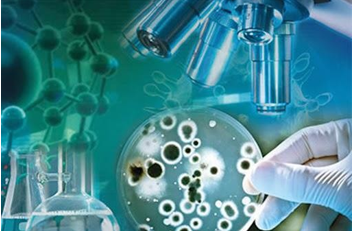
Educational activity
Employees of the department have developed and updated in accordance with the Federal State Educational Standards work programs in the main disciplines “Microbiology, virology” for the medical and pediatric faculties, “Microbiology, virology - oral microbiology” for the dental faculty, “Microbiology, virology” for the medical and preventive faculty and “ Microbiology" for the Faculty of Pharmacy.
Teachers of the department have created and introduced into the educational process educational and methodological complexes for all taught disciplines, including methodological developments of the lecture course, teaching aids and recommendations for teachers and students, guidelines for students’ independent work, tests for the final testing in the discipline for stage I exam, a fund of questions for stage II of the “Practical Skills” exam, a fund of questions for stage III of the exam (oral questioning), as well as methodological support for written exams
During practical classes, theoretical issues are discussed and the initial and final levels of students’ knowledge are checked, videos on this topic are shown, and practical work is performed.
To carry out practical work on the study of the morphology, physiology of microorganisms, as well as the study of methods for identifying microorganisms, a training laboratory with all the necessary equipment and equipment has been created at the department.
Students document all practical work in the form of protocols with analysis of results and conclusions.
The entire educational process at the department is carried out with a full set of educational and methodological documentation. Educational and methodological complexes for each faculty are presented in full on the educational portal.
Scientific activities of the department of microbiology, virusology
The scientific and pedagogical school of microbiology was created by the Honored Worker of Science of the Republic of Belarus N.I. Melnikov, and later a student of Nikolai Ivanovich Melnikov, a WWII participant, professor, Honored Worker of Science of the Republic of Belarus M. G. Gimranov.
Back in the 19th century, the remarkable microbiologist, French explorer Louis Pasteur, spoke of “the infinitely large role of infinitely small creatures.” The subject of the department that was chosen by Professor N.I. Melnikov 60 years ago: the study of the properties of dozens of genera of opportunistic microorganisms turned out to be unchanged and always relevant.
Only “infinitesimal creatures” are studied by his followers, led by Professor Gabidullin Z.G. at the modern molecular genetic level.
The topic of studying opportunistic microorganisms has become the central scientific topic of many dissertations and monographs published by members of the department during different periods of its existence.
Professor Gabidullin Z.G. created a scientific school recognized by the microbiology departments of all medical universities in the country.
The results of scientific research carried out under the guidance of Professor Z.G. Gabidullin, are presented and summarized in 7 doctoral and 26 candidate dissertations, about 320 scientific publications were published, including about 40 patents and certificates of authorship, and were also presented at International symposia and congresses.
Numerous scientific studies carried out under his leadership formed the basis of the scientific school of microbiologists at the genetic and molecular levels.
Since 2014, the scientific and pedagogical school of microbiology of the department has been headed by Professor, Doctor of Medical Sciences Marcel Maratovich Tuigunov.
Educational work
The task of training specialists working in the system of higher medical education is of particular importance.
It is necessary to form your student medical professional who is able not only to overcome existing difficulties, but also to promote medical science, practice and education, making them adequate to modern requirements.
Educational work is carried out during the learning process at the department.
At lectures and practical classes, teachers of the department constantly consider issues of professional guidance of students, issues of ethics and deontology, moral and legal aspects of student education.
Work is being carried out on the environmental education of students, to combat drug addiction, substance abuse, and gambling in the form of conversations and discussions.
The microbiological safety of food and medicinal raw materials and finished forms is discussed at the round table.
During practical classes, the use of microbes in various areas of industrial and agricultural production, the use of enzymatic activity of microbes in industry is emphasized, the role of microbes in the cycle of substances and their role in human health is discussed, as well as the biological safety of the population and the use of pathogens of especially dangerous infections as bacteriological weapons .
Conversations are held about the deontology of a doctor, about the role of microbiology in the activities of a pediatrician, pharmacist, clinician, and in the activities of a sanitary doctor; the role of microbes in medicine and human life is emphasized.
Particular attention is paid to the formation of competencies of future specialists, both general cultural and general professional.
Certain aspects of these problems are discussed at meetings of the scientific circle.
As part of the work of this circle, student research is carried out on normal human microbiocenoses, the reasons for their violation and the associated adverse consequences for humans are discussed.
After all, the human body seems to be constantly balancing between a state of health and illness, the transition between which can be gradual and imperceptible.
Every year, excursions are held to the diagnostic laboratory of the department for second- and third-year students.
Every year, according to the order of the rector, the department holds an intra-university Olympiad among university students in the discipline of Microbiology and Virology.
It contributes to the development of intellectual and creative abilities of students, improving the quality of the educational process, stimulating interest in research activities, as well as promoting scientific knowledge and modern achievements in the field of microbiology.
Teachers of the department conduct additional classes on the subject “Microbiology” for schoolchildren of specialized chemical and biological classes of schools of the Educational and Methodological Complex “School-University” of the Center for Pre-University Training and Career Guidance Work of the University.
This work is also necessary for further professional orientation of schoolchildren - future university applicants in medicine, which gives them a sufficient understanding of the content of the upcoming work and the requirements that the profession places on the individual specialist.


